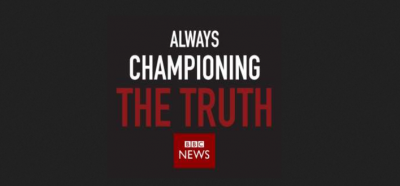BBC Under Increasing Criticism for Biased Reporting

It’s almost as British as fish and chips and a pint, but what used to be embraced by the masses as a reliable source of information, the BBC, is now under increasing scrutiny for its overt political bias. With the growing popularity of social and alternative media, Brits are no longer taking as gospel what is pumped out by, this publicly funded service which is increasingly coming under fire for being nothing more than a propaganda machine for the sitting government. The hashtag #BBCbias has been trending for some time now on Twitter, and with more and more commentators questioning the integrity of this public service, it’s clear that the organisation needs to take a long hard look at itself.
Let’s take the issue of Scottish Independence for example. Coverage of this, and of the Scottish National Party has been demonstrated to be biased for years. A 2014 report by Dr John Robertson concluded that BBC reports in the run up to the Yes campaign consisted of “typically a Westminster scare story, on the Yes campaign, mostly left unanswered and unchallenged” and that coverage had “not been fair or balanced”. More worrying however, the research had illustrated that this biased reporting could well have had a negative impact on the independence movement: “we have evidence of coverage which seems likely to have damaged the Yes campaign”. The revelations earlier this year by a senior BBC journalist, Allan Little, that his colleagues viewed it as their responsibility to demonstrate how ‘foolish’ independence was, only adds to the case that coverage was far from impartial.
But despite the public outcry, it’s clear that few lessons have been learned. Much of the current criticism of the BBC is to do with its stance towards the Labour party led by Jeremy Corbyn. It couldn’t be more obvious from interviews by some of its top journalists – Andrew Marr for one – that there is an anti-Corbyn position, and in fact Corbyn has himself accused Marr in the past of ‘establishment bias’. A report from 2016 only looked into coverage of the Labour leader by the mainstream media in general and concluded that there was a “marked and persistent imbalance” in favour of sources critical to him. Furthermore, it singled out the BBC for using more ‘pejorative language’ when referring to Corbyn and his party colleagues and it gave almost double the unchallenged airtime to people criticising the Labour leader than to his supporters.
In recent months however, since Prime Minister Boris Johnson took office, the preferential treatment given to the government has been more stark than ever, mainly down to the nature of his ‘style’. For more than any other Prime Minister before him, Johnson has been accused of being economical with the truth. Therefore the BBC is under increased pressure to either promote the government position, as it has traditionally done, however extraordinary it may be, or rethink its approach altogether. One of the first to bring this issue to the public eye was acclaimed journalist Peter Oborne. Writing in Open Democracy, he stated that ‘British journalists have become part of Johnson’s fake news machine’. He accuses the Prime Minister of having “debauched Downing Street by using the power of his office to spread propaganda and fake news” and mentions the BBC Political Editor Laura Kuenssberg, saying she was ‘manipulated by Downing Street’ when she reported ‘insider information’ without questioning it. But with the lies of Boris Johnson being exposed more and more, how long can the BBC protect him?
Peter Oborne does go some way to explaining the problem: “I have talked to senior BBC executives, and they tell me they personally think it’s wrong to expose lies told by a British prime minister because it undermines trust in British politics.” But in actual fact this does not convey fully what is happening. For the reality is, despite its mission statement boasting of its aim “to act in the public interest, serving all audiences through the provision of impartial, high-quality and distinctive output and services which inform, educate and entertain”, the BBC is, and always has been, a mouthpiece for the British government of the day. Its journalists, up until the 1990s were vetted by the British security services. It’s always had an agenda to promote the establishment narrative and to oppose any individuals or movements which threaten that. Scottish independence is a threat. Jeremy Corbyn is another. The former will break up the Union; the latter is deemed a security risk because of his pacifist tendencies and non-interventionist stance when it comes to foreign policy.
But with both these movements gaining ground, and British politics and society in a state of flux, we are now in uncertain territory. The period of post-war stability is now coming to an end, and so is it the reign of the mainstream media. For the BBC to survive in this new media landscape it will have to inject a heavy dose of honesty and transparency into its broadcasting, or face being obsolete. As populism gathers strength, and people access a wider range of media sources than ever before, they will no longer be accepting things at face value.
*
Note to readers: please click the share buttons above or below. Forward this article to your email lists. Crosspost on your blog site, internet forums. etc.
This article was originally published on InfoBrics.
Johanna Ross is a journalist based in Edinburgh, Scotland.
Featured image is from Media Lens

